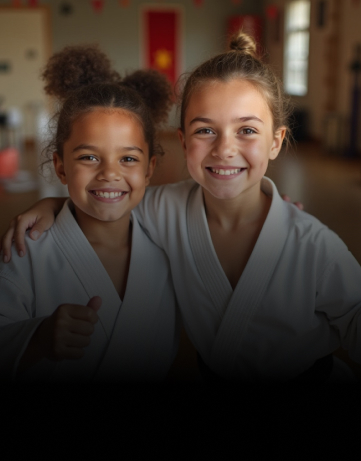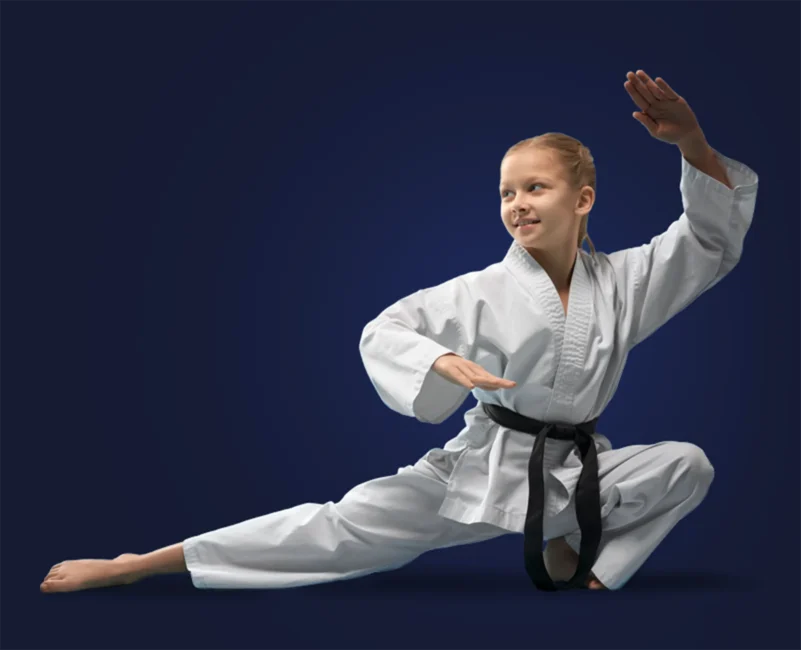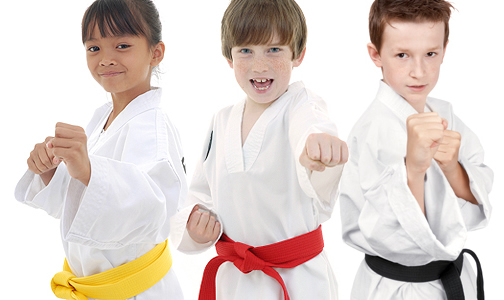Exactly How Karate for Kids Can Boost Confidence and Self-control in Youthful Martial Artists
Karate for kids uses a special possibility to build self-confidence and technique in young martial artists. As they discover brand-new strategies and face challenges, they not just obtain skills but likewise create a solid sense of self-respect. This organized setting encourages them to appreciate the trip of renovation. Just how does this training convert into their everyday lives? Discover the deeper connections that make karate even more than simply a sporting activity.
The Importance of Confidence in Childhood Advancement
Confidence is a crucial building block in childhood development. When you nurture your child's self-esteem, you empower them to deal with difficulties, take dangers, and reveal themselves easily. Youngsters with self-confidence are a lot more happy to discover social situations and brand-new tasks, which can bring about long-term relationships and beneficial experiences.Encouraging your youngster to tip out of their convenience area promotes durability. They learn that failure isn't completion yet instead a stepping rock to success. By commemorating their achievements, no issue just how tiny, you assist them acknowledge their abilities and worth.In this journey, support and positive support from you play an important function. Whether it's with praise or simply being present, your involvement boosts their self-confidence. As they expand, this confidence ends up being a lifelong property, outfitting them to navigate both challenges and opportunities with a solid sense of self.
How Martial Arts Educates Self-control and Focus
Martial arts assists you build self-control and focus with its structured training regimen. As you practice mindfulness throughout each session, you'll discover to focus much better both on and off the floor covering. And also, setting and attaining objectives in martial arts enhances your ability to remain attentive and dedicated.
Structured Training Regimen
While you take part in karate training, you'll promptly find just how an organized program infuses discipline and focus in young experts. Each course adheres to a particular layout, consisting of warm-ups, technique method, and sparring. This consistency teaches you to commit and value the process to renovation. As you discover forms and strategies, you develop a feeling of responsibility for your very own progress.The structured atmosphere urges you to set objectives, whether mastering a brand-new belt or refining a kata. You'll locate that staying focused throughout courses and drills sharpens your concentration. The technique you cultivate in karate expands past the dojo, positively influencing your schoolwork and daily routines. Each session enhances the importance of commitment, aiding you grow into a much more self-displined individual.
Mindfulness in Method
As you exercise martial arts, you'll find that mindfulness ends up being an important part of your training. Each action requires your full attention, assisting you remain concentrated on the existing moment. You'll learn to ignore disturbances and focus on your breathing, movements, and objectives. This increased understanding develops your reflexes and boosts your discipline.During sparring or kinds, you'll uncover the importance of being mentally present - Karate Salisbury MD. You'll discover how this focus not only boosts your technique but also develops your confidence. By practicing mindfulness in martial arts, you grow perseverance and durability, necessary traits that extend past the dojo. In this way, martial arts instructs you to harness your mind, assisting you establish a regimented method to challenges both on and off the mat

Goal Setting Techniques
Establishing goals in karate isn't simply about making belts; it's an effective way to cultivate technique and focus. When you set certain, achievable targets, you produce a roadmap for your development. Instead of simply intending to boost your kicks, try focusing on mastering a certain technique each month. This method keeps you inspired and engaged.Breaking down bigger objectives right into smaller sized, manageable steps helps you track your progress and celebrate little success in the process. Whether it's developing your position or increasing your sparring endurance, every goal reinforces your commitment. As you achieve these goals, you'll build self-confidence in your abilities and create a solid feeling of technique that expands past the dojo right into daily life.
Building Durability Through Martial Arts
Martial arts, particularly karate, offers children an one-of-a-kind possibility to construct durability in a helpful atmosphere. In classes, they face obstacles that press their limitations, whether it's grasping a new strategy or competing with a partner. Each problem, like a missed kick or a shed match, becomes an opportunity to find out and grow.As they practice, kids find out to accept discomfort and maintain trying, even when points get tough. They uncover that failing isn't completion; it's part of the trip. This mindset aids them jump back more powerful, not simply in the dojo, yet in daily life.With each challenge they get over, your kid builds self-confidence in their ability to take on challenges, sustaining their decision. Through martial arts, they'll understand that durability isn't nearly physical strength; it has to do with mental grit and determination, empowering them to deal with whatever life tosses their way.
The Duty of Respect in Karate Educating
Respect is a foundational concept in karate training, fostering a culture of technique and camaraderie amongst students. When you step onto the dojo flooring, you're not simply learning methods; you're additionally learning to appreciate your teachers, peers, and the art itself (Karate Salisbury MD). Bowing at the start and end of class isn't just a rule; it signifies your acknowledgment of others' efforts and dedication.As you establish common regard, you'll find it enhances your discovering experience. You'll pay attention more attentively to your trainer and gain insights from fellow trainees. This setting urges positive criticism and support, allowing everyone to grow together.Moreover, respect cultivates self-discipline. Acknowledging the value of effort and humility assists you stay concentrated on your training. Consequently, this respect equates into your everyday life, improving your interactions and relationships outside the dojo. Through karate, you learn that regard is essential for personal development and area structure
Establishing Goals and Accomplishing Success in Martial arts

Social Abilities and Synergy in the Dojo
While training in the dojo, children normally develop vital social abilities and synergy capacities. As they exercise along with peers, they learn to communicate effectively, share space, and support each other. Each class presents opportunities for collaboration, whether it's during partner drills or group workouts. This synergy cultivates relationships and develops a feeling of belonging, making the dojo a nurturing environment.Kids likewise get useful dispute resolution skills. When they experience challenges, such as disputes during sparring, they find out to browse these circumstances constructively. They practice patience and compassion, recognizing that everybody has different toughness and weaknesses.Moreover, taking part in group activities cultivates a feeling of liability. You'll see your kid finding out to rely upon teammates and take obligation for their function in a group. These experiences not just boost their fighting styles trip yet additionally outfit them with social devices they'll lug right into various other areas of life.

The Long-Term Advantages of Martial Arts Beyond Childhood
As youngsters grow up and change into their adult years, the benefits of click now martial arts prolong far past the dojo. You'll find that the discipline and emphasis learned via karate can convert into your specialist and academic life. Setting and attaining goals in martial arts cultivates a strong job ethic, which can push you to master any endeavor.Moreover, the confidence obtained from mastering methods and competing can improve your this page self-worth, helping you tackle challenges head-on. This durability ends up being important as you deal with the uncertainties of adulthood.Additionally, the social skills developed through teamwork and friendship in the dojo can bring about far better partnerships in both individual and specialist rounds. You'll discover to interact effectively, resolve conflicts, and construct an encouraging network.Ultimately, karate shapes not just experienced martial artists, but all-round individuals ready to take on the world.
Regularly Asked Questions
What Age Is Best to Start Karate for Children?
You can start martial arts as very early as age four or 5, but it frequently relies on your kid's maturation and interest. Discovering a course that suits their age and energy degree makes a large distinction.
Exist Any Health And Wellness Advantages From Exercising Martial Arts?
Yes, practicing karate offers countless health benefits. You'll boost your versatility, toughness, and control while increasing cardiovascular health and fitness. And also, it improves focus and mental wellness, making it a wonderful option for general physical and mental health and wellness.
How Commonly Should Children Participate In Karate Courses?
You ought to encourage your kids to participate in karate courses at the very least a couple of times a week. Consistency aids them learn strategies effectively and establish abilities, making their experience much more delightful and gratifying in the future.
Can Karate Help With Handling Anxiousness in Kid?
Yes, martial arts can help manage stress and anxiety in kids. It educates emphasis and self-control while offering a risk-free outlet for energy. You'll discover your kid growing much more positive and calm as they practice regularly.
What Equipment Is Required for Kids Starting Martial Arts?

Comments on “Best Karate for kids – Award-Winning Programs Built Upon Core Values and Resilience”